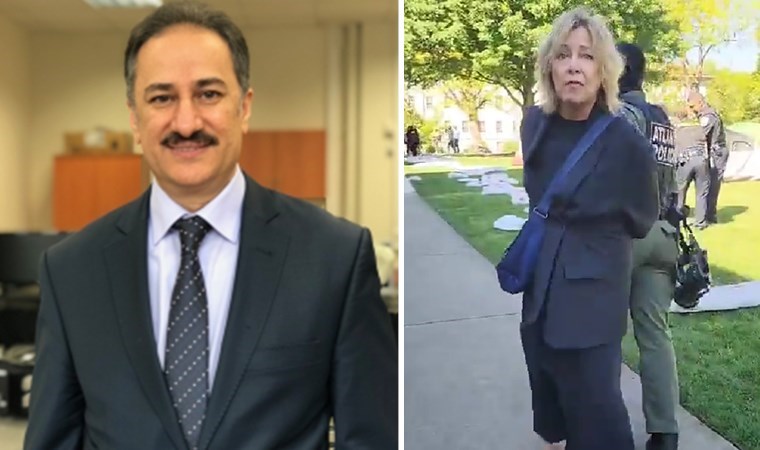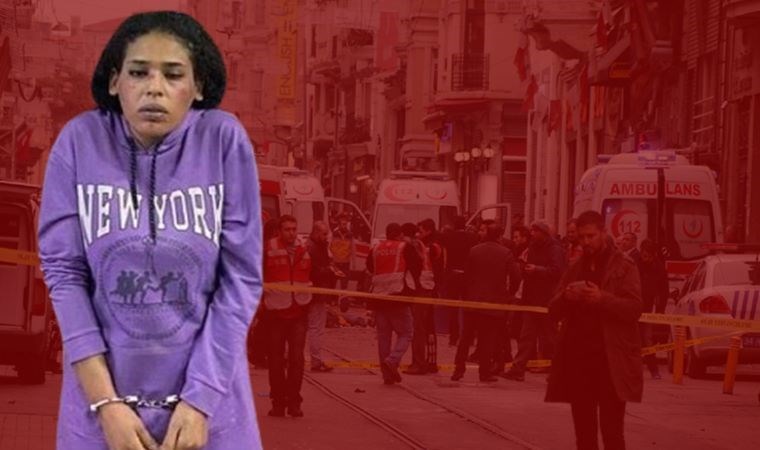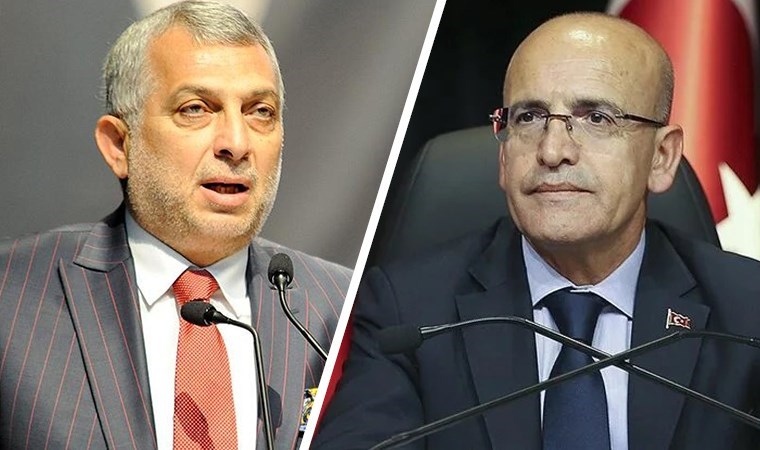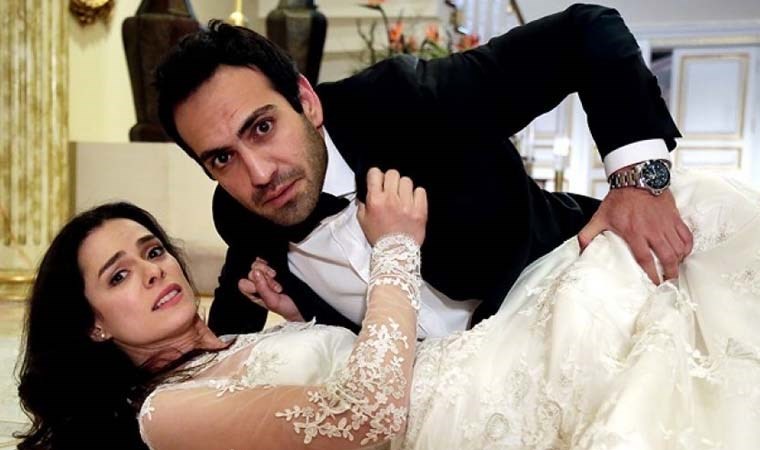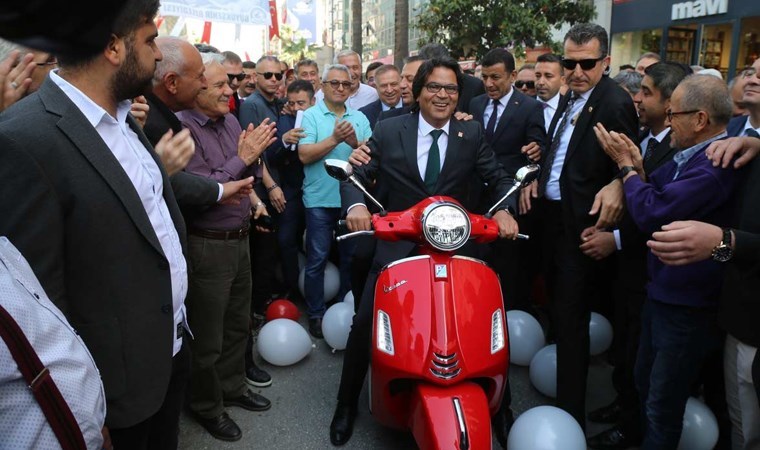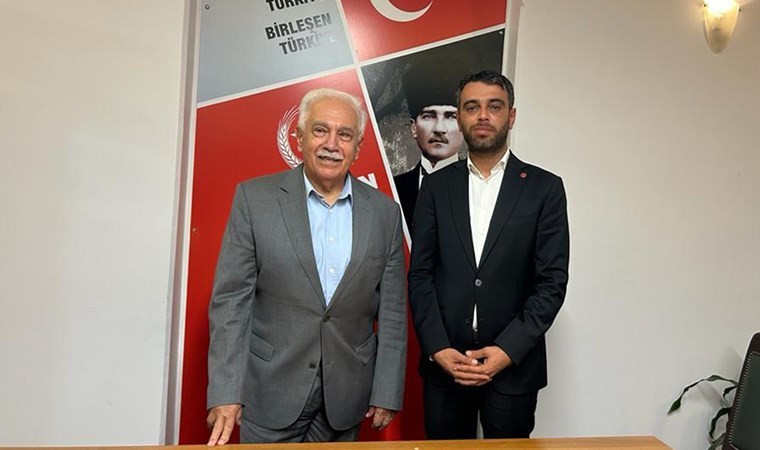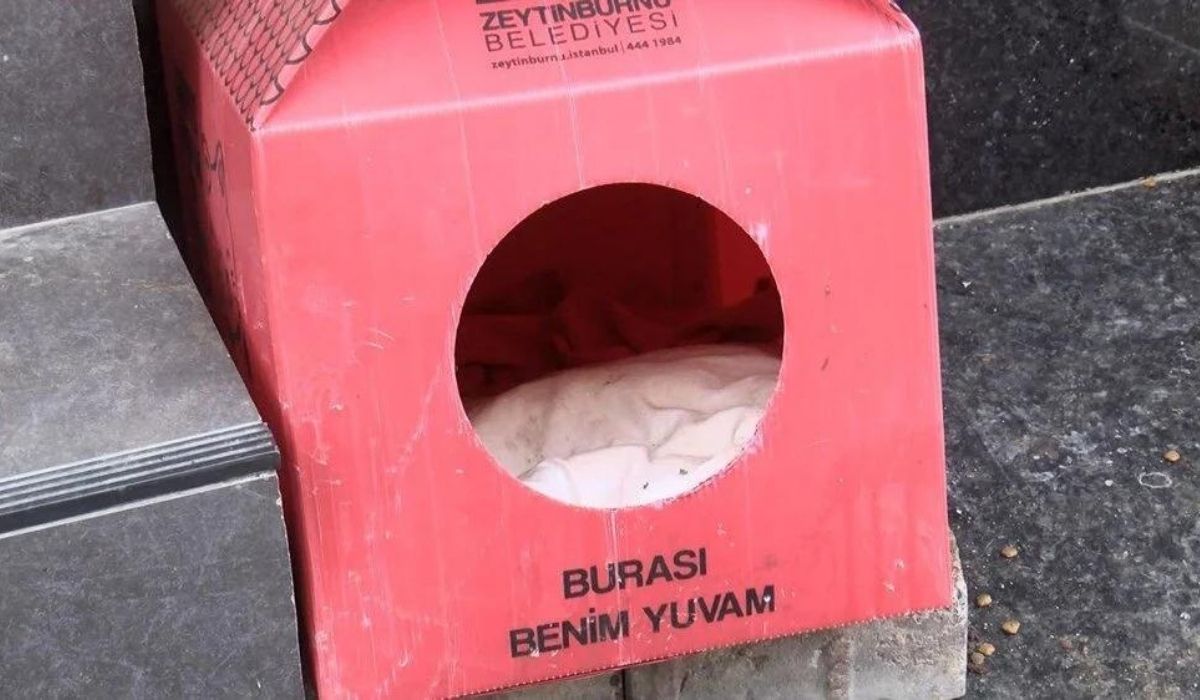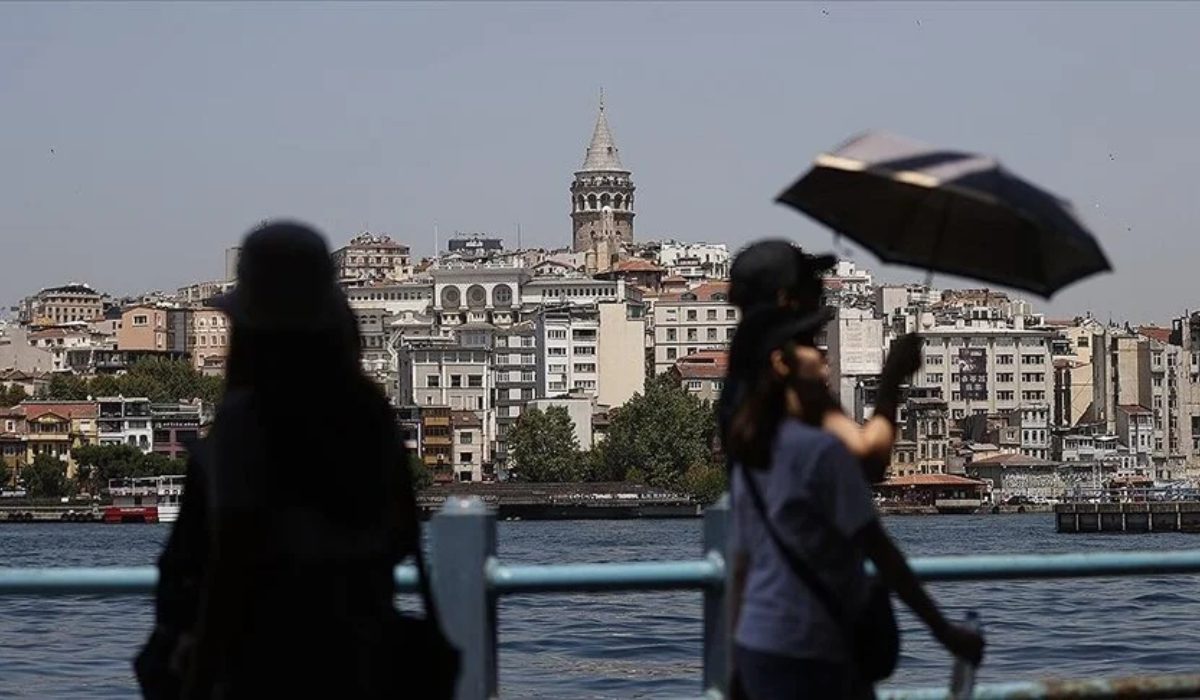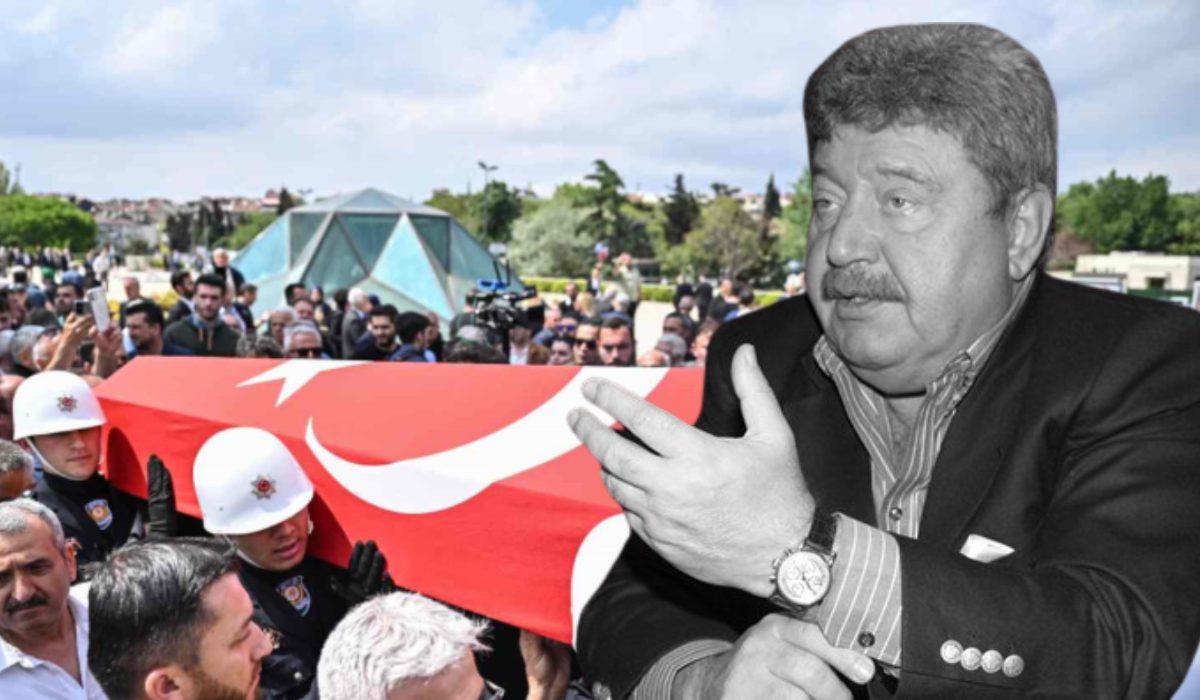The state of emergency was only going to last for one and a half months
The state of emergency, now in place for one and a half years, has seen Turkey governed under decrees with the force of law.
Sinan Tartanoğlu
The “Emergency” period was only going to last for one and a half months. That was one and a half years ago.
It has ingrained the notions of “membership”, “relationship”, “adjunctiveness”, “connection” and “belonging” into the civil service’s and people’s spirits. The door to restructuring the state was opened with these notions. Details that impact on people’s daily life have been abandoned to the “might of decrees with the force of law.” Ears have been blocked to the injustices created by sanctions that have altered people’s lives. It has created its own legislation and “provisions with the force of law” unsanctioned by the “legislative power.” It has created its own law with indictments devoid of charges, innocent defendants, lawyerless defences, witnessless courts, pressless press trials and unlawful proceedings in the trials of journalists, parliamentarians and academics. Courts do not recognise the rulings of the senior judiciary which derives its authority to pass judgment from the Constitution.
All power has been placed in the hands of the executive, and the hands of the executive surrendered to the Presidential Palace. The people have grown accustomed to the presidential system through state of emergency force. A brief summary of the “currently visible effects” of the state of emergency that has been extended for the sixth time by three months and that exerts a profound effect on social life with each of its implementations:
The AKP, blocking its ears to the warnings that the opposition had voiced for years on all platforms, opened the way for the Gülen brotherhood to enter the most capillary veins of the state. The “tension” between the government and brotherhood, which erupted over the 17/25 December graft and bribery operation, came to a head with the closure of the supplementary educational institutions. Following the 15 July coup attempt, in turn, all elements of the equation pointed to the “tension” turning into outright war. The government, declaring a state of emergency, described the “15 July 2016 Armed Coup Attempt” as “a vile attempt to overthrow the free democratic order established under the Constitution and fundamental rights and freedoms.” The declaring of a structure that had taken “entryism” to the extent of being able to influence even the most minor of state institutions a “terrorist organisation”, the placing of all sections of the opposition in the “terrorist organisation and terrorist sack” whose mouth was opened to the full, the instant branding of people as terrorists through “encouraging squealing”, the besieging of all corners with “security state paraphernalia”, and the countering of everything from the largest union-backed strike to the smallest sing-in protest with the violence inherent in the perception of terrorism engendered have, following the passage of one and a half years, cast a shadow over the very notions of the “free democratic order established under the Constitution” and “fundamental rights and freedoms” that featured in the justification for doing all this.
It has been one and a half years
The government declared a state of emergency over the whole country for a period of 90 days under a recommendatory resolution of the National Security Council. In the first announcements emanating from the government wing, it was said, “We want to end the state of emergency as soon as possible. If things go normally, we are contemplating a period of one to one and a half months at most. We hope a further extension will not be needed.” However, the state of emergency was extended five times on 11 October, 3 January, 18 April, 17 July and 19 October. On 19 January, it will be extended for a further three-month period.
The first decree with the force of law in the state of emergency period was promulgated on 23 July 2016. That date witnessed the onset of the period of “decrees” not subjected to parliamentary scrutiny and approval. Of a total of 31 decrees, only five have been debated and enacted in the General Assembly of Parliament in accordance with the Constitution, averaging once every two months. Decrees that have a profound effect on the life of the people are kept waiting for months on the agenda of the people’s Parliament. The decrees have created a new state of emergency legislation consisting of some one thousand articles that involve profound change.
Branded terrorists
Research has revealed that 99 per cent of those expelled under decrees had not been under any kind of penal investigation prior to 15 July. They were instantaneously branded terrorists. A significant portion of the victims who have been subjected to judicial proceedings are said to have suffered prejudicial treatment at police stations, judicial complexes and courts. A significant portion reportedly underwent mistreatment in detention suites and prisons.
Ban on acquiring information
The state of emergency began to affect thousands of people along with its first decree. Claims of victimhood and objections increased in tandem with the arrest orders, detentions, suspensions and expulsions. One of the state’s first procedures in conjunction with the state of emergency was to forbid the asking of the question that was the most natural right of people unable to see what their crimes were in the decrees in which their names were listed. A restriction was placed on citizens finding out about procedures being conducted into them and the reasons for them. The Right to Information Assessment Board passed a confidentiality resolution over state of emergency procedures a short while after the coup attempt, on 4 August. The provision of information about state of emergency procedures to people and bodies directly affected by the procedures was thus banned.
Eight decrees were issued in the first three months following the coup attempt. Tip-offs were made into the one of the fundamental bases of judicial and administrative acts. Thousands of administrative and judicial acts were passed on the basis of anonymous tip-off letters forwarded to institution administrations, province and sub-province state of emergency offices and the Prime-Ministry. The shortcomings inherent in conducting procedures under anonymous tip-offs were realised on 21 October. The instruction was given under the ensuing circular that petitions “not containing the petitioner’s forename, surname, signature and work or residential address” would not be examined. However, there continued to be expellees and detainees who spoke of falling victim to anonymous tip-off letters.
Era of the security-cleared civil servant
The “security state” that the state of emergency established did not just remove people from the public service under certain pretexts. In public recruitment, “security” became one of the prime and most effective tools for distinguishing among prospective civil servants. Clearance in the “security investigation” became the basic requirement for entry into the civil service. Time-limit provisions on launching investigations into public servants for disciplinary offences were lifted. Civil servants were thus exposed to the threat of constant investigation.
Passport ban
Administrative powers over passports were widened. Added to the grounds of “general security” which the Interior Ministry cited in declining to issue a passport were those of “ties with a terrorist organisation.” Both in the case of those affected by decrees with the force of law and for reasons similar to decrees with the force of law, the issuing of passports was thereby restricted under “open ended” powers left at the Interior Ministry’s initiative. The passports were thus cancelled of thousands of people, including people who had themselves been affected by decrees with the force of law, had been added to lists drawn up by the administration and had been arrested, detained and named in arrest orders, along with their families.
Endless perception of threat
The right of assembly and protest march that is guaranteed under Article 34 of the Constitution was suspended. In a letter sent on 18 October 2016 from the Interior Ministry to all provincial governates “all manner of meeting or protest march, opening of stalls or setting up of tents to be done in open spaces” were either made subject to permission for a period of fifteen days or forbidden entirely for a period of thirty days. The reasoning cited as grounds for suspending the right of assembly and protest march as per the Interior Ministry letter: “Terrorist organisations may engage in provocative acts such as attacks against actions that are staged and people who participate at meetings and also peaceful actions may be exploited by terrorist organisations and turned into propaganda for organisations and also such activities may lead to unwished-for events between groups of an opposite opinion” has retained its validity for months.
Perceptions over security have been magnified step by step. Under a decree with the force of law, those who have served as mayor or village or quarter head for at least one term have been authorised to carry and be in possession of firearms. The bringing of service and inventory arms into the country by members of the intelligence agency has been made subject to approval by the President’s office. The perception of threat instilled into the street by the state has breathed life into the institution of the “watchman”. Under supplementary regulations of decrees with the force of law, 14,500 new neighbourhood and city-centre watchmen have been recruited. The powers of private security officials at private security service providers have been increased. Their powers to use firearms have been restricted to their “appointed areas.” However, wide-ranging powers such as following suspects or “those arousing strong suspicion” have been appended to the notion of “appointed area.” The police have even been given search powers in virtual space. All information pertaining to internet subscriptions have been opened up to police surveillance. Access providers and hosting providers have been made liable to supply the police with all requested information. The Telecommunications Communication Department, which served as the intelligence interception centre, has been closed. All its powers including intelligence sharing with the gendarmerie, intelligence agency and police have been transferred to the Information Technologies and Communications Board. All interception powers have been brought together within this body.
Bans in the streets
From municipal workers resistance tents to commemoration of the Suruç massacre, from activities at Alevi faith centres to the play “At the Sun’s Dining Table-Nâzım and Brecht” directed by Genco Erkal, from the Zeytinli Rock Festival to alcohol consumption at all venues in Yozgat, from Muharrem activities to be held at cemevis and state of emergency protests to commemoration of Deniz Gezmiş and sing-in protests after sunset, the streets are full of bans from A to Z. In numerous provinces, all manner of activities such as meetings, protest marches and press statements have been banned for temporary periods. Even the Human Rights Monument in Ankara has been blockaded with police barriers.
State of emergency bans on five strikes
Under a state of emergency decree with the force of law, the Cabinet’s powers to postpone strikes has been widened. Decree with the Force of Law No 678 has enabled strikes and lockouts to be postponed for sixty days if they are decided to be of a nature that will disrupt public health, national security, urban public transport services or economic or financial stability in banking services. In fact, on the grounds of “disruption to public health, national security and economic and financial stability,” the Cabinet’s powers to postpone strikes also covers strikes in urban public transport services and the banking sector. As such, an effective ban on all strikes having a character that is “disruptive to national security” has been implemented under a state of emergency decree with the force of law. President Tayyip Erdoğan responded to the business world’s criticisms regarding the state of emergency by saying, “We are using the state of emergency so that the bosses can feel at ease and workers do not come out on strike.” The government has banned five strikes using powers deriving from the state of emergency. The 18 January 2017 Asil Çelik strike, United Metalworkers’ 20 January 2017 strike at workplaces affiliated to the Electromechanical and Metal Employers' Association, the 20 March 2017 Akbank strike, the 22 May 2017 Şişecam strike and the 5 June 2017 Mefar Pharmaceutical Works strike were banned on the grounds either of “disrupting economic and financial stability” or of “disrupting public health and national security.” However, over the time the AKP has been in power, eight separate resolutions banning strikes have been passed, even in the absence of state of emergency powers.
Resistance at its most basic to the state of emergency
Academic Nuriye Gülmen and teacher Semih Özakça are two of thousands of state of emergency victims. They held a sit-down protest in the middle of the capital to voice their demands to return to their jobs. They turned their protests into a hunger strike. Even if they were detained, they kept up their strikes. Gülmen was released and Özakça was acquitted of the charges against him. However, they are maintaining their hunger strikes because they have been unable to return to their jobs despite all this.
Political responsibility consigned to the next world, and the opposition to jail
The political propaganda of the fight against FETO has been rooted in the rhetoric, “The traitors had worked their way into the narrowest capillary veins of the state.” President Tayyip Erdoğan’s words, “We showed tolerance because they spoke of God. It grieves me that this treasonous organisation’ true face was not exposed. I know that I have an account to give to both my Lord and our people. Let my Lord and my people forgive me” have been consigned to the “next world”. However, the social opposition, whose “capillary vein X-ray” had long since been taken and which had in any case been struggling to breathe for a long time under the duress for this very reason, also found itself in the firing range in the name of “combatting terrorism”. Following the passing of one and a half years, the biggest question mark is still over how successfully the Gulenists have been X-rayed from the “capillary veins” to the “arteries” or even as far as the “heart” and “brain” and the extent to which the blood has been cleaned in the new regime established under decrees with the force of law.
The people’s representatives under the state of emergency
State of emergency law has both freed itself from legislative oversight and has brought pressure to bear on elected representatives at both local and central level. Under an amendment made to the constitution before the coup attempt and proclamation of the state of emergency, members of parliament were stripped of their immunity up to the date of the amendment. The “lack of immunity” pressure placed on MPs was gradually stepped up in the state of emergency climate. Almost every MP of the HDP has been arrested, had their statement taken and released at least once. The latest stage of the process, which escalated with the detaining of HDP co-chairs Selahattin Demirtaş and Figen Yüksekdağ, has seen nine HDP MP’s being detained. The number of HDP seats, which stood at 59 at the start of the latest legislative period, has been reduced to 53 for a variety of reasons.
The stripping of immunity paved the way for a new decree with the force of law regulation that opened the door for MPs elected with the people’s votes to be detained. A procedural amendment was made under a decree with the force of law to investigations into MPs. Jurisdiction over investigations into MPs was narrowed. Jurisdiction over prosecution and investigation of MPs alleged to have committed a crime before or after election, which vested in all republic chief prosecutors’ offices, was awarded solely to Ankara Chief Republic Prosecution.
Curators in place of elected representatives
The state of emergency duress on democratically elected representatives has not been applied solely to parliamentarians. The Interior Ministry has been authorised to appoint curators in place of elected mayors. To this end, it has been deemed sufficient for an elected mayor to be removed from office or detained on terror charges. Under this power, curators have been appointed to 106 municipalities. Of these, 93 were HDP, 9 AKP, 3 MHP and one CHP.
The curator appointed under decree with the force of law powers to Diyarbakır Kayapınar Municipality removed the memorial commemorating the 34 civilians who were bombed to death in Uludere. The curator appointed to Diyarbakır Municipality terminated the contracts of the city theatre’s actors, including some who had been acting for 25 years.
Curators even at headships
Head of Gaffar Okkan Quarter in Manisa’s Salihli sub-province, Kamuran Kocaman, was removed from office for not having attended President Tayyip Erdoğan’s Manisa rally, and an appointment was made to replace him.
With the detaining of CHP MP Enis Berberoğlu, the number of detained parliamentarians reached ten. CHP General Chair Kemal Kılıçdaroğlu started the “Justice March” from Ankara to Istanbul in reaction to the detention of MPs. The march ended in a giant Justice Rally. Then a wide-raging Justice Congress was held in Çanakkale. However, the government responded negatively even to the demand for justice in the unending state of emergency. President Tayyip Erdoğan, in turn, gave an insight into the workings of the state’s mind as the process unfolded in saying, “What difference is there between you and the 15 July lot?”
Women under the state of emergency
According to figures released in the “We are not becoming acclimatised to the state of emergency” petition campaign to which nearly ninety civil society organisations appended their signatures vanguarded by women members of the Confederation of Progressive Trade Unions of Turkey, Confederation of Public Employees' Trade Unions, Union of Chambers of Turkish Engineers and Architects and Turkish Medical Association, at least 21,409 women have been expelled from public service. Of the expelled academics, 1,409 are women. At municipalities to which curators were appointed, 44 women co-mayors have been removed from office. 33 co-mayors have been detained. More than 50 women’s organisations have been closed. Six women MPs have been detained.
According to a report by the Human Rights Joint Platform, of the 116,250 public servants dismissed under state of emergency decrees with the force of law, 21,944, that is 18.9%, are women. According to the same report, the percentage of women among expelled academics is the same.
The notion of “constituting their continuation” is probably the most contentious area of state of emergency legislation. A large number of regulations have been made starting with the wording, “The 15 July coup attempt and acts of terrorism and acts constituting their continuation.” The children and brothers of those who fell in the course of these actions have been exempted from military service. One of the children or brothers of public servants who fell in the course these actions have also been exempted from military service. Public servants who had duties in quelling the coup, acts of terrorism and “acts constituting their continuation” have also been absolved of civil, administrative, financial and penal liability. Additionally, members of that “superempowered, functionless whitewashing body”, the State of Emergency Commission, have been granted immunity in respect of the decisions they take. The lack of clarity of the wording “constituting their continuation” in all these state of emergency regulations has given rise to an environment of political debate. Moreover, in common with each imprecise regulation in the legal sphere, it has enhanced doubts over the future.
Claims of torture suffered following 15 July have only found their way into human rights organisations’ reports and petitions made to parliament. As there has been no effective prosecution and thanks to the immunity the decree with the force of law has granted to public servants, nobody has been placed in the dock on torture charges. For example, a citizen who was arrested in Trabzon and was subjected to physical and verbal abuse by the police while under arrest made a complaint to the public prosecution. The complaint was not processed, with the decree with the force of law granting immunity to public servants cited as grounds.
The Interior Ministry has issued a list ordering the expulsion from citizenship of 129 people. It was announced that if the people named on the list, including Fethullah Gülen, HDP MPs Faysal Sarıyıldız and Tuğba Hezer and former HDP MP Özdal İçer, did not return to Turkey within three months, they would be expelled from citizenship. However, far more than three months have elapsed since the date on which both lists were announced.
Gowns under the boots of the security state
A photograph taken in front of Ankara University Faculty of Political Sciences painted a stark picture of the duress the “security state” is imposing on academia.
Academics wished to hold a meeting at Ankara University in opposition to their expulsion. The police denied the expelled academics admission to the school and then mounted a harsh attack on the lecturers along with accompanying parliamentarians, students and graduates. The gowns of the lecturers who had been refused admission to the school were crushed under police boots.
Handcuffs on ideas, expression and writing
In the 12 September period, 31 journalists were detained. According to the latest figures released by the Union of Turkish Journalists, 145 journalists and media employees have been jailed in the extraordinary prosecution period that commenced following 15 July. According to the Independent Communication Network’s Media Observation Report, 122 journalists went to jail in 2018. Journalists are charged with “coupism”, “overthrowing the constitutional order” and “cooperating with and aiding armed organisations”. When “defamation” and “defaming the president” are added to these charges, at least 520 journalists and media representatives are in detention or have been released pending trials in which sentences totalling 3,672 years and six months’ imprisonment are sought. Moreover, according to the Human Rights Joint Platform’s latest report, a total of 200 media and publishing outlets have been closed in the state of emergency period. The closure order has only been revoked over 25 of these. So, 175 media and publishing outlets embarked on 2018 with seals on their doors. With the closure of 67 newspapers ordered, 17 were reopened, while the closure orders over 50 newspapers continue. Among the newspapers to have been closed are Taraf, Özgür Gündem, Azadiya Welat and Evrensel Culture Magazine.
The door has been locked of six news agencies, including Dicle Haber and Jin Haber. Under decree with the force of law lists and administrative powers granted under decrees with the force of law, 37 TV stations have been closed. Only four have been reopened and 33 TV stations remain closed. Using the same methods, 41 radio stations were silenced, four of which have evaded the closure order, leaving 37 radio stations still closed. According to the 2017 World Press Freedom Index published by the civil society organisation Reporters Without Borders, which campaigns worldwide to strengthen press freedom, Turkey retreated a further four places as against the previous year to stand at 155th among 180 countries. Thus, a mere four places remain until Turkey enters the “black list” of the countries in which the situation is worst. Turkey has fallen precipitously by 56 places in this league table over the past twelve years. Turkey, said to have turned into the “world’s biggest prison for journalists,” was described as being “one of the most frightening countries” in the commentary accompanying the said index.
Blow after blow to academia
Of the academics expelled under decrees with the force of law, 26% came from the ranks of assistant professors. 25% were research assistants, 17% were associate professors, while 14% were professors. The expulsions of academics could be said to equate to the closure of five Bosphorus and two and a half Middle East Technical Universities. The futures of research assistants holding tenured positions at state universities has been left to the decision university management.
Associate professorship procedures for candidate associate professors have been halted. The way has been blocked for academics who have been expelled under decrees and restored to their duties under decrees to be reinstated at the universities from which they were expelled.
With Ankara University, left bereft of dozens of academics under decrees with the force of law, on the one hand struggling to plan courses that have been left without lecturers, it has on the other hand adopted a new policy regarding retired professors. Doyens from among lecturers who have given years of their labour to the Faculty of Political Sciences find themselves barred from acting as non-staff lecturers and retired professors Büşra Ersanlı, Günay Göksu Özdoğan, Bilsay Kuruç, Cevat Geray, Sina Akşin, Ruşen Keleş, Seyhan Erdoğdu, Gülay Toksöz, Mesut Gülmez, Handan Çağlayan and Süheyl Batum, who have devoted years to academia, have been stripped of their courses and had their relations with the university broken off.
“What are you missing?”
Political responsibility has been evaded with the words, “Let my Lord and my people forgive me.” However, after 15 July the rulership, which until 15 July blocked its ears to concerns voiced by the opposition over the Gülenists, proclaimed both those who had seen the truth for years and those who now came out in opposition to the state of emergency regime to be terrorists. A pronouncement that courted great controversy came from President Tayyip Erdoğan in the tenth month of the state of emergency. To the question resonating ever more firmly from virtually every section of society of, “When will the state of emergency end?” Erdoğan retorted, “It will not end. Until when? Until we have attained peace and well-being. What are you missing? Are your factories not working and are you not going to your workplaces? Are the schools closed? Why should the state of emergency end?”
State of emergency law
Stays of proceedings have been banned in legal action brought over decisions and procedures taken within the scope of decrees with the force of law during the state of emergency, even if they are contrary to the law.
Domestic legal remedies automatically blocked
The administrative courts have ruled themselves to lack jurisdiction in the state of emergency sphere, declaring the acts performed to be legislative acts inspired by the name “decree with the force of law.” The civil courts have declared themselves unable to intervene in acts of the executive, given that decrees with the force of law enter into force with the Cabinet’s approval. The Constitutional Court has also closed its ears and eyes to the fact that acts, even if performed “with the force of law,” are not legislative actions and has remitted the violation applications that have been made to the State of Emergency Procedures Examination Commission, itself also set up under a decree with the force of law. The European Court of Human Rights, ignoring that the new state of emergency judiciary has automatically blocked the domestic legal system, has also directed those whose lives have been transformed under decrees with the force of law to the commission.
Superempowered, functionless whitewashing body
All eyes turned to the State of Emergency Commission, but it was stillborn from the outset. Not only was it skewed in its handling of all business, but all business was placed at the behest of one of the chief signatories, the Prime-Minister. It was going to proclaim, when warranted, that an error had been made in a decree with the force of law signed by the Prime-Minister and, when warranted, determine that a court order that had led to a person remaining in detention for months was wrong. Claims about mistreatment were simply adjudicated through perusal of the application file. The injured party was thus circumvented from learning of the charges against them, examining the evidence and mounting a defence. Hope was still placed in this “superempowered body” but the commission was unable to perform its function. The commission, which was set up under a decree with the force of law promulgated in January 2017 but waited for six months to start functioning, has amassed more than 102,000 applications over mistreatment shrouded in questions as to who was to be whitewashed and on what basis. One year has passed since it was established but it has yet to effectively achieve any result. Given its inability to achieve results, the recourse to object to commission decisions reputedly made available has yet to be seen.
Private army-like special operations
An urgent need by the state for special operations police officers arose in the aftermath of 15 July. To this end, application was made to the might of decrees with the force of law. Arrangement was made, as opposed to police officers, for 27-year-old high school graduates to become special operations candidates and for the Public Personnel Selection Exam requirement to be dispensed with for candidates. Special operations were given a special status within the force, again under a decree with the force of law.
Secrecy of defence violated
Arrangement has been made for lawyers’ meetings with detainees and even convicts to be audibly and visually recorded, for an official to be present at the meeting and for seizure to be made of documents passing between detainees or convicts. Judicial oversight of investigations has been weakened. Prosecutors have acquired the right to issue apprehension orders. It has been made easier to declare people to be fugitives and in this way for their assets to be seized even if they have not fled. The power to declare somebody to be a fugitive that could only be made at the prosecution stage has been extended to the investigation stage. The way has thus been opened for a person to be declared a fugitive by a prosecutor. The normal limit of 24 hours for a prosecutor’s seizure decision to be submitted to a judge has been extended to five days. This regulation has given rise to the suspicion that it will be made easier over such a lengthy time to falsify the objects seized, i.e. the evidence. The requirement for two neighbours to be present in order for a home or business premises to be searched has been reduced to one neighbour. The way has been opened for searches and seizure to be conducted in military zones and lawyers’ offices without the participation of a prosecutor. Arrangement has been made for documents and papers obtained in the course of a search that are the sole concern of judges and prosecutors to be examined by the law enforcement agencies, too. The decision to seize suspects’ computers and make copies of their computers, once, too, the sole preserve of judges, has also been placed at the disposal of prosecutors. The security of evidence has once more been jeopardised. Prosecutors have also been empowered to intercept and record. Prosecutors have been empowered to commission secret investigations and intercept using technical equipment.
Uniform prisoners in a uniform state
The obligation for defendants to wear uniform attire at hearings to which the President and Prime-Minister had made frequent reference following 15 July has also been brought into effect under decree with the force of law powers. Contrary to the presumption of innocence, the rule has been imposed that coup offence defendants are to wear almond-brown and terrorism offence defendants grey jumpsuits. As to the penalty of removal from the hearing of a prisoner who fails to comply with the dress requirement, this has been imposed contrary to the right to a fair trial with a hearing.
Isolation for prisoners
Under the normal state of law, detainees had the right to four visitations per month from friends and relatives. One of these was granted in the form of an open visit. In fact, visitation was available to family members in the widest sense and people nominated by convicts themselves. However, under a state of emergency decree with the rule of law, this has been restricted to spouses and relatives up to the second degree, instead of family members in the widest sense. Non-family visitation rights have been banned. The weekly phone call right has been reduced to once every fifteen days.
Lengthy arrest combined with lengthy detention
The arrest period, which under the normal state of law is 24 hours and can be extended to a maximum of 72 hours for certain offences, was initially extended to thirty days under a decree with the force of law. This period was later reduced to seven days, and with additional authorisation for a seven-day extension, to fourteen days. From information supplied in human rights reports, a 24-hour communications ban is being imposed by Republic Prosecutors on arrestees in the state of emergency period.
Unlawful evidence facilitated under decree with force of law
The special judiciary created by the state of emergency has not only made its presence felt over mistreatment claims. A fair number of regulations have been incorporated into the Code of Criminal Procedure under powers granted by decrees with the force of law. Restrictions have been introduced on suspects’ meetings with lawyers even at the investigation stage. Initially, a five-day restriction was placed on the right to meet with a lawyer, necessary to preclude the unlawful manufacturing of evidence by taking a suspect’s statement under duress. This was later reduced to 24 hours.
Lawyerless hearings in the interest of speedy trials
The way has been opened for hearings to proceed in the absence of lawyers, under the pretext of bringing the 15 July trials to a speedy end in line with the executive power’s wishes. Should a lawyer fail to attend the hearing without an excuse or also depart from the hearing without an excuse, arrangement has been made for the proceedings to continue. It has even been made possible for the sentence passed against the defendant to be read in the absence of a lawyer. Contrary to the right to a fair trial, in cases where the court deems this necessary, arrangement has been made to enable the defendant’s examination to be made without being brought to the hearing. To this end, the establishing of two-way audible and visual communication techniques is sufficient. A restriction has been imposed of three lawyers to defend the defendant in trials filed over organisational activity. In this way, the forming of a strong defence front in courtrooms composed of a large number of lawyers has been precluded in trials that arouse opposition and are deemed to be political.
Expulsion of lawyers, too
It has been made easier to bar lawyers from serving as defence counsel and thus, in a sense, to expel them. It has even been deemed sufficient to bar lawyers from acting as defence counsel for an investigation into organisational offences to have been initiated against them. It has even been made possible for a lawyer to be barred from acting as defence counsel while a penal investigation into their client is ongoing. The presumption of innocence has been nullified under decree with the force of law powers with respect, not just to defendants, but to defence counsel and the right to defence. A large number of lawyers have been barred from acting as defence counsel. The Ministry of Justice has denied permission to those law faculty graduates who were working as academics at universities and were expelled under decrees and who wish to return to the profession of lawyer. The way has been opened, contrary to the right of defence and objection, for the prosecution to restrict lawyers’ rights to examine their client’s file and take copies of documents. The way has been opened for all detention examinations, not just the objection made to the initial detention order, to be conducted on the basis of the file. The way has thus also been barred to granting the right for detention examination to be conducted with a hearing and for personal defence and oral objection. Prosecutors have been given the right of objection if the ending of detention is ordered.
Military reorganised from scratch
Palace-affiliated “prophet’s corps”: The Chief of the General Staff’s duties and powers have been curtailed. The basic customary promotional procedure in the military has been overturned. In order to become Chief of the General Staff, the requirement to have acted as a service commander has been dispensed with. The land, air and sea service commanders have been subordinated to the Ministry of National Defence. The Gendarmerie General Command and Coast Guard Command have been subordinated to the Interior Ministry. Hence, the gendarmerie have become law enforcement officers and not soldiers. The President and Prime-Minister can now give direct orders to the services. The Chief of the General Staff’s chain of command authority has been limited to wartime. Service commanders have been stripped of their power to make in-barracks appointments. The training infrastructure within the military has been totally changed. The closing of the military high schools and the establishing of new schools such as the National Defence University and Gendarmerie and Coast Guard Academy has been done entirely in order to reduce the Chief of the General Staff’s powers to create new forces. The government’s weighting on the Supreme Military Council has been increased.
Palace Defence Industry: Not just the barracks, but the country’s defence industry has been subordinated to the Palace. The Defence Industry Executive Committee, which charts the direction of billions of dollars of military manufacturing, has been placed under the President’s charge. The Undersecretariat for Defence Industries has also been taken away from the Defence Ministry and given to the President’s office. Along with the Turkish Armed Forces Foundation, the giant companies of the defence industry ASELSAN, ROKETSAN, HAVELSAN, TUSAŞ, İŞPİR and ASPİLSAN have been placed under the Palace’s management.
Palace Intelligence Agency: State of emergency powers have been used to subordinate the Intelligence Agency to the President’s office prior to the transition to the presidential system. Arrangement has been made for the Intelligence Agency Undersecretary to be appointed by the President. The Intelligence Agency’s giant budget has been subsumed under the presidential office’s undisclosed payments instead of the Prime-Minister’s office’s undisclosed payments. It has been made harder for Intelligence Agency agents to resign. Coordination of all the state’s intelligence units, not just the Intelligence Agency, has been concentrated in the presidential office through the National Intelligence Coordination Board.
Barracks shortfall made good under a decree with the force of law: To speedily stem the staff shortfall caused by expulsions, flexibility was introduced into the waiting period and service record requirements for promotion. There was a weakening of the rules governing the induction of pilots from the civilian sphere. An army of reserve pilots named “contingency pilots” was created to be used in time of need. Even those with ties to terrorist organisations have been called to arms under a drafting procedure established by the Ministry of National Defence.
Palace empowered to swap detainees: Arrangement has been made for foreign detainees and convicts to be extradited to another country and for them to be swapped with convicts and detainees in another country.
1202 amended articles in 370 laws
Many profound changes that are not restricted to the reasons for the proclaiming of the state of emergency and are not limited in time have been made to legislation under decrees with the force of law. Alongside brand-new regulations, the making of changes that will impact on all areas of social life has not been shied away from. Determinations made by retired Civil Service Chief Inspector Mahmut Esen reveal that amendments have been made to 370 laws with 1202 new articles using the “omnibus law technique” in areas such as the judiciary, national defence, internal security, public employees, social security, the media, national education and local government.
Many amendments have been made to the Traffic Law under state of emergency decrees with the force of law from the suitable place for number plates to be attached to the fines applicable to vehicles with foreign number plates and from enabling vehicle registration procedures to be conducted by a notary to the mandatory use of winter tyres.
Ending ballots in academia
The ballots conducted to elect rectors at universities were deemed to be unnecessary under a decree with the force of law. It was deemed sufficient for the names of the Council of Higher Education’s three candidates to be submitted to the president for rectors to be appointed. Should the Council of Higher Education not nominate any candidates or the president not appoint one of the nominated candidates, the president has been empowered to appoint rectors directly. The period of appointed, not elected, rectors which AKP governments have been planning to implement from the outset has come into being under state of emergency force.
Powers vested in Council of Higher Education Chair
The power to apply disciplinary penalties to lecturers that was at universities’ disposal has been vested in the Council of Higher Education Chair. The Ministry of National Education has been enabled to take on contracted teachers through interview in the East and South-East Anatolian regions. A requirement of four years’ service has been imposed to enable these teachers to pass onto the public payroll. The rule has been set of spending two years on the public payroll before requesting reappointment.
State of emergency turns education into a jigsaw
The requirement has even been introduced under a decree with the force of law that private educational institutions into which supplementary educational institutions were transformed following their closure provide education and learning in one part of the curriculum only. The decree ordered the closure of supplementary educational institutions belonging to municipalities. This ban was lifted under another decree. Student study centres were closed.
Another regulation unrelated to the state of emergency concerns pupils whose villages have been vacated on counterterrorism grounds. These students have been made ineligible for non-repayable grants for the duration of their higher education.
Why was the health service split?
The arrangement under AKP governments whereby the health organisation was split in two by way of the Public Hospitals Administration and the Public Health Institution of Turkey has been dispensed with in the state of emergency period. These bodies have both been turned into general directorates affiliated to a central organisation.
The promise of state payroll positions made to subcontracted workers especially in the 2015 general elections has only proved fulfillable in the state of emergency period. The large number of workers excluded from this arrangement have thereby been precluded from taking legal action on the grounds of unfairness since the regulation was made under a decree with the force of law.
Powers to blacken screens
Limitations on the freedom of press and expression have also been implemented under state of emergency decrees with the force of law. The Radio and Television Supreme Council’s powers to temporarily take TV stations off the air or even revoke their licences have been widened. In order to open a TV station, the precondition has even been imposed of getting authorisation from the intelligence agency and police.
Penalties imposed for breach of broadcasting principles such as balanced electoral coverage and failure to give coverage to opposition parties have also been dispensed with under decrees with the force of law. Supreme Election Council supervision of election period coverage has been eliminated.
Chat, dating and matchmaking programmes have been banned along with programmes selling food supplements. Gemlik olives have even fallen victim to the state of emergency. In Bursa’s Gemlik sub-province, the moving of Gemlik to higher ground due to the earthquake risk and the regulations covering the move have been made in a decree with the force of law. CHP Bursa MP Ceyhun İrgil has commented, “The Gemlik decree with the force of law sounds the death knell for the olive groves. There is no power to control the onslaught of concrete unleashed by the decree with the force of law.”
State of emergency sub-provinces
Sub-provinces named Kemalpaşa in Artvin province and Sultanhanı in Aksaray province have been established.
State of emergency comes to the screen
In the wake of the decree with the force of law regulating the closure of TV stations that do not comply with broadcasting bans, the managers of TV stations were summoned at the start of the week to the Radio and Television Supreme Council at the behest of the Prime-Minister’s office. Managers were informed how broadcasting was to be conducted in state of emergency periods. On-scene footage, footage of ambulances and fire engines, eye-witness accounts and footage of officials at work is not to be show, along with criticism and commentary about incidents or the inscriptions “hot news” and “breaking news” after the incident has lost its immediacy. Speakers and reporters are not to use “exaggerated expressions involving agitation.” Information is not even to be given about where an incident has taken place or maps showing where the incident has occurred. Only comments by official offices and subtitles unaccompanied by footage are to be excluded from the ban. The “censorship communication” has been viewed as a return of the “screen blackening” practices that the AKP abolished as soon as it took power.
Expulsion of 3.4% of the public service
* Over 115,000 public workers have been expelled from their posts and punished for life. The expellees from public service have not been employed by the private sector. Of the expelled public workers, 25% are women.
* Expulsions have hit 27.3% of the judicial community, 19.7% of the civil service, 8.87% of the police force, 4.4% of the Turkish armed forces, 2.8% of religious service functionaries, 1.9% of health service staff and 1.8% of local government staff. Under decrees with the force of law, 3.4% of public sector staff have been stripped out from the state.
* From the most recent report put out by the Confederation of Public Employees' Trade Unions, 4,218 of the expelled public servants were members of unions affiliated to the Confederation of Public Employees' Trade Unions, and 159,506 people have been arrested.
* Also, according to figures collated by the Confederation of Public Employees' Trade Unions, it is estimated that “those among the more than 100,000 expellees who suffer from various disabilities and chronic illness number 2,000.” These people have been deprived of income and social security through their expulsions.
* Of those arrested, 60% have been tied to FETO, 30% to the PKK, 9% to Islamic State and 1% to left-wing organisations. 47,523 people have been placed in detention.
* Between April 2017-December 2017, 36,432 social media accounts were placed under examination on such grounds as organisational propaganda, defamation and hate speech. Proceedings were taken against 16,378 people.
* 2,271 private educational institutions and bodies, 49 private health bodies, 146 foundations, 1,427 associations, 15 foundation higher education institutions and 19 trade unions have been closed. Of the closed associations, 11 focused on feminist issues and one on children.
* 5,822 academics have been expelled from 117 universities. Of the expelled academics, 386 signed the Academics for Peace Declaration. One-fifth of the expelled academics are women.
* According to Savings and Deposits Insurance Fund reports, curators have been appointed to 1,222 companies and commercial undertakings valued at 47 billion lira. 49,928 employees have come under the management of curators.
Victims tell their story
The results of a study into 2,173 people conducted by the Rights and Justice Platform were announced in the final days of 2017. Here are some of the accounts given by decree with the force of law victims included in the report:
“The university we worked at was closed under the first decree with the force of law to be issued. We were not even paid our salary for the month we had worked. We were not given our statutory severance rights. We found ourselves on the street in the course of a day. And we are grateful for this because many of our friends have had their freedom usurped.”
“I made forty job applications”
* “I underwent seven days under arrest and was given a conditional release. As I am an academic, my inability to go abroad has deprived me of all my work and means of subsistence. My wife is also unemployed because we worked at the same university. I made forty job applications to the private sector and received no reply to any of them. I was unable to go to Germany where I was to go for one year as a visiting researcher as of May 2016 and my grant fell through for not being taken up on time. My associate professorship exam has been put on hold even though I have passed the treatise stage.”
* “I was prosecuted for defaming the president. The judge handed down a sentence even though the presidential lawyer dropped the claim.”
“The lawyer did not defend me”
* The wish was to punish me because I was in the opposition ... and I was not in the party. I was punished for being a member of the Education and Science Workers' Union and being a socialist.”
* “They supplied a lawyer but the lawyer urged me to turn informant. He did not defend me.”
“I was detained in my barracks”
* “I was detained in my barracks which I did not come out of at all on 16 July 2016. My time in detention started while still in my barracks. I was handcuffed from the rear while being beaten and sworn at. I was taken through people who had been worked into a frenzy. And our bus was stoned. I have experienced a kind of death. I was then thrown into a stable. I was brought to my knees here and handcuffed from the rear and held naked for three days. I was subjected to a constant stream of verbal abuse over the course of my arrest. I suffered various physical and psychological tortures. No health worker made a report about me having undergone torture. I was then detained and held in detention for nine and a half months. Under poor conditions. And under harsh conditions.”
“The only thing they didn’t do was rape”
* “I was in jail for 345 days. I underwent countless human rights violations. I still do not know what I was detained for, what I was held for and what I was released for.”
* “I suffered intimidation through abuse and threats and duress to name names and get out.”
* “The only thing they didn’t do was rape (apart from that they applied every torture). How can I speak of the torture? They got the doctor to issue a clear report saying they would take him in on FETO charges. What can I speak of? I (from now on) wish to live in Uganda. I was on special operations staff for fourteen years and worked for twelve years of this in the South-East. They called me a “terrorist”. Could there be worse torture than this? I who received counterguerrilla training and have trained students will not take umbrage at my state and country and become marginalised. I will not go to the place where they want to take me.”
States of emergency were normalised on 12 September
Turkey has a history of martial law and states of emergency dating back to 1925, even if these have exhibited both differences and similarities in qualitative and quantitative terms.
In the aftermath of the Sheikh Said rebellion, martial law was proclaimed in the provinces of Muş, Bingöl, Elazığ, Siirt, Diyarbakır, Mardin, Tunceli, Urfa, Bitlis, Van, Hakkâri, Malatya and Erzurum between the dates of February 1925 and December 1927. Following the Menemen incident, martial law prevailed in Menemen and the provinces of Manisa and Balıkesir from January until March in 1931. There was martial law in İstanbul, Kırklareli, Edirne, Tekirdağ, Çanakkale and Kocaeli during the Second World War between the dates of October 1940 and December 1947. Following the 6-7 September events, martial law was proclaimed in Istanbul, Ankara and Izmir between the dates of September 1955-June 1956. Martial law cast its stamp on Istanbul and Ankara between the dates of April 1960-December 1961 due to the student events of 1960. In the wake of the 20 May 1963 rising and coup attempt, martial law was proclaimed once more between the dates of 21 May 1963-20 July 1964 in Istanbul, Ankara and Izmir. Martial law was proclaimed in 1970 between the months of June and September owing to the 15-16 June events.
And 12 March
Between the dates of 26 April 1971 and 26 December 1973, martial law was proclaimed in eleven provinces. It remained in force in fifteen provinces between the dates of July 1974 and September 1975 for the Cyprus Peace Operation.
Following the 1978 Maraş massacre, martial law was proclaimed in thirteen provinces: Adana, Ankara, Bingöl, Elazığ, Erzincan, Erzurum, Gaziantep, İstanbul, Kars, Malatya, Kahramanmaraş, Sivas and Şanlıurfa. Martial law was later lifted in Sivas and Erzincan. Martial law was proclaimed in 1979 in Adıyaman, Diyarbakır, Hakkâri, Mardin, Siirt and Tunceli, and in 1980 in Hatay, İzmir and Ağrı provinces, with “widespread incidents of violence” cited. When the 12 September coup started, martial law was prevailing at the time in nineteen provinces. Military rule brought with it the declaration of martial law in another 48 provinces. From 1984 to 1987, martial law was gradually lifted in all provinces.
State of emergency takes root
However, this spelt the emergence for Turkey of the era of regional states of emergency. The foundations for today’s state of emergency implementations were laid in the 1982 Constitution and the State of Emergency Law of 1983. The year in which martial law was lifted in the provinces where it was in force was 1987. However, Prime-Minister of the day, Turgut Özal, announced the first state of emergency resolution in 1987.
For a total of fifteen years from 1987 to 2002, it held sway in Eastern and South-Eastern provinces alone. The state of emergency implemented on a regional basis was extended a full 46 times over fifteen years by parliamentary resolution. The regional state of emergency covered thirteen provinces for fifteen years; it started in Bingöl, Diyarbakır, Elazığ, Hakkâri, Mardin, Siirt, Tunceli and Van provinces and was later extended to Adıyaman, Bitlis and Muş, with the final addition of Batman and Şırnak.
The regional state of emergency passed into Turkey’s history along with Gendarmerie Intelligence and Counter-Terrorism, the murder of civilian villagers, the arresting of Amnesty International Representatives just as now, the banning of certain politicians, tribal leaders and public servants from entering the state of emergency regions, murders by unknown perpetrators and torture.
Unending demand: Justice
The sole demand articulated since 1995 until today by the Saturday Mothers from the period of the murders by unknown perpetrators until today’s state of emergency has been for justice. The CHP’s Sezgin Tanrıkulu probably made the most striking pronouncement on behalf of the Saturday Mothers, congregating for the 669th time in Galatasaray Square in the quest for justice. Tanrıkulu said, “To speak of a state of emergency means to speak of people going missing, death, torture and prison.”
Even if it does not boil down to figures, the state of emergency and its impact on its victims can best be accounted for in figures.
The report compiled by the Rights and Justice Platform having interviewed 2,173 people, 1,465 of whom are victims of decrees with the force of law, 342 victims’ relatives and 366 people who are not direct victims, both gives a summary in figures of the harsh climate that has engulfed Turkey for one and a half years and provides clues as to the social wound that has been opened up.
According to the report, 29% of state of emergency decree with the force of law victims describe themselves as conservative, 22.5% as democratic, 12.5% as nationalist and 8% as social democratic.
92% of the victims are graduates of higher educational institutes and universities.
The unemployment rate among those expelled under state of emergency decrees with the force of law is 65%. Many of those managing to get a job are uninsured.
23.5% of those arrested in the state of emergency period stated that they suffered mistreatment or torture.
16.7% of those who were detained in prison attempted suicide or harboured thoughts of suicide. Of these, 6.9% actually planned or attempted suicide.
50% of state of emergency victims are experiencing nervous disorder or affective disorder.
Of those who have undergone judicial investigation, no indictment has even been drafted against 46%. 81% of state of emergency victims consider the investigation they have undergone to be unfair. 55.6% were unable to exercise the right of defence and 30.8% were not permitted to have a lawyer at their side while their statements were taken. 95.8% of expellees had not undergone any investigation whatsoever prior to 15 July.
“Silent revolution” reversed fourteen years later
The state of emergency ceased to exist in Turkey in the AKP’s first year in office of 2002. In fact, before the AKP came to power, implementation of the state of emergency ceased in Siirt in 1999, in Van in 2000 and in Hakkâri and Tunceli in July 2002. The AKP based its rhetoric of, “We have ended the state of emergency” proclaiming this to be the “start of silent revolutions” on the lifting of the implementation of martial law in the final two provinces of Diyarbakır and Şırnak.
Let it finally end
One and a half years has been completed under the state of emergency. The Cabinet passed a resolution for a further three-month extension as of 19 January. With oppression on the increase, demands for an ending of the state of emergency are also beginning to be articulated in a louder voice. The rulership keeps on blocking its ears to these voices. There is an endeavour to accustom Turkey to state of emergency conditions to the accompaniment of elections, referendums, constitutional amendments altering the system of governance, major terrorist attacks in city centres, cross-border military operations, diplomatic crises and turbulence in domestic politics. Even if the opposition has not ended its objection to the state of emergency, its voice has become muted. The sixth three-month state of emergency period has been started, as has the military operation in North Syria. Now the images of soldiers, arms, tanks, mortars and rifles have been added to the climate the state of emergency has engendered throughout the country and the security state practices. President Tayyip Erdoğan has made the following pronouncement on the prospects facing Turkey: “Wishing for no bloodshed and so on is not on...There is martyrdom here, there are war heroes here and there is blood.”

En Çok Okunan Haberler
-
 Kayyum rektörün paylaşımına tepki
Kayyum rektörün paylaşımına tepki
-
 Kadınları 'çarşaf'a çağırdılar
Kadınları 'çarşaf'a çağırdılar
-
 Taksim bombacısı için karar çıktı
Taksim bombacısı için karar çıktı
-
 Metin Külünk'ten, Şimşek'e 'fotoğraflı' uyarı
Metin Külünk'ten, Şimşek'e 'fotoğraflı' uyarı
-
 Altın fiyatları güne nasıl başladı?
Altın fiyatları güne nasıl başladı?
-
 Mersin’de hasat başladı: 150 bin ton rekolte bekleniyor!
Mersin’de hasat başladı: 150 bin ton rekolte bekleniyor!
-
 Mükemmel koca olan 4 burç
Mükemmel koca olan 4 burç
-
 Özgür Özel 'kırmızı motosiklet' sözünü tuttu
Özgür Özel 'kırmızı motosiklet' sözünü tuttu
-
 Nihal Candan için yeni karar
Nihal Candan için yeni karar
-
 Perinçek’in danışmanı Adanur tutuklandı
Perinçek’in danışmanı Adanur tutuklandı
